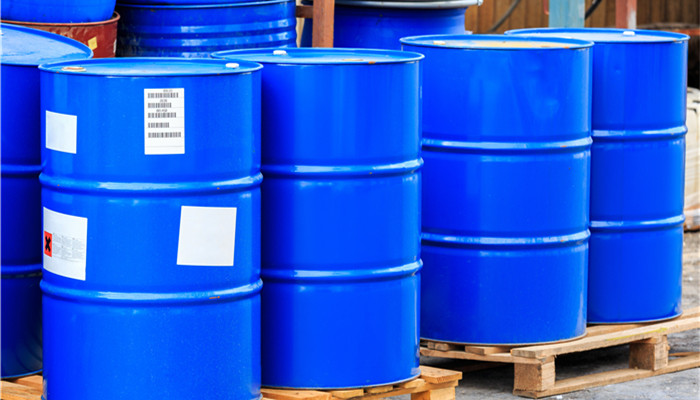
The 3-mercaptopropionic acid market needs to be regulated and the market space will still maintain a growth trend.
3-Mercaptopropionic acid is also known as β-mercaptopropionic acid, thiopropanoic acid, thiolactic acid, and sulfhydrylpropionic acid. It appears as a colorless or light yellow transparent liquid or crystal with a strong sulfide smell. 3-Mercaptopropionic acid is an important industrial raw material with a variety of uses. It can be used as an intermediate for the pharmaceutical Fenal, and can also be used as a polyvinyl chloride stabilizer, antioxidant, catalyst and biochemical reagent. In recent years, due to technological innovation, 3-mercaptopropionic acid can be used as a high-performance mediator in the production of new cement admixtures-polycarboxylate water-reducing agent to control the molecular weight and improve the water reduction rate and slump retention performance of concrete. Therefore, it has been widely used. development and application.
In the early days, 3-mercaptopropionic acid was mainly used in pharmaceutical intermediates, polyvinyl chloride stabilizers, etc. Due to its small dosage and complex process, there were almost no large-scale production companies in China. In recent years, with the continuous development of chemical technology, the application fields of 3-mercaptopropionic acid have gradually broadened, especially in the field of concrete admixtures. The polycarboxylic acid-based high-performance water-reducing agent using 3-mercaptopropionic acid as raw material is the current comprehensive performance The best concrete water-reducing agent is gradually replacing other products and becoming the most widely used water-reducing agent in China. The competition in the 3-mercaptopropionic acid market is fierce, with 10-20 manufacturing companies, price wars between companies occur frequently, and market standardization needs to be improved.
In recent years, with the intensification of industry competition, the competitive risks faced by the 3-mercaptopropionic acid market have increased sharply. First of all, in the fierce market competition, the competition pattern of the 3-mercaptopropionic acid industry has changed. In order to compete for orders, 3-mercaptopropionic acid companies have implemented low-price strategies, which has weakened the overall profitability of the industry; secondly, some companies and unscrupulous traders have Mercaptoethanol impersonates 3-mercaptopropionic acid, or adulterates 3-mercaptopropionic acid, disrupting the market order, damaging the reputation of the 3-mercaptopropionic acid industry, and amplifying the market risks of 3-mercaptopropionic acid; again, 3-mercaptopropionic acid Propionic acid-related companies promote technological development and process optimization to reduce environmental pollution and improve product quality. Companies that are unable to keep up with the pace of technological development may be at a disadvantage in industry competition and be eliminated by the market. According to the released “2023-2028 China 3-Mercaptopropionic Acid Industry Market In-depth Research and Development Prospects Forecast Report” shows that in 2022 In 2017, the output of China’s 3-mercaptopropionic acid industry was 5,675 tons.
3-Mercaptopropionic acid is currently mainly used in the field of concrete water-reducing agents, and its market prospects are closely related to the development of the concrete market. Analysts believe that in the future, China’s economy is expected to continue its steady and positive development trend and continue to transform to high-quality development; domestic Infrastructure investment is expected to continue to be optimized, providing strong support for the growth of concrete market demand; at the same time, the gradual rise of new infrastructure is expected to bring new momentum to subsequent infrastructure investment, which will also have a certain promoting effect on the concrete market, and in turn drive 3-mercapto Propionic acid market growth. Therefore, the market demand for 3-mercaptopropionic acid is expected to maintain a growth trend in the future.

 微信扫一扫打赏
微信扫一扫打赏

